- It’s What We Do
- Contributors
- Ténéré Tragics
- Industry Players: Robin Box
- Safari ADVT
- Horizons Unlimited
- The Cold War
- Adventure Travel Film Festival
- Reader’s Pic
- Set Up to Stand Up with Craig Hartley
- The Adventure Challenge
- Triumph XC800 Tiger Across Australia
- Yamaha 2014 Super Ténéré
- BMW Airheads
- Wish You Were Here
- Reader’s Ride: Borneo
- Afraid Not with Karen Ramsay
- Packing For Adventure with Robin Box
- Navigation Techniques with John Hudson
- How To Ride with Miles Davis
- No Comment
- 20 Things You Should Know About: BMW’s 650 Singles
- 10 Minutes With: Allan Roberts
- Ol’ Mate
- Reader’s Bike: Robert Holness’ KLR650 and Ural Tourist
- Checkout
Allan Roberts Finishing Dakar on the first attempt
Victorian-born mechanic Allan Roberts, 36, entered and finished his first Dakar in 2014. Nowadays he works offshore from Exmouth, WA, but Allan once rode from London to Australia through Africa, Arabia, Iran, Russia, Mongolia and China. The ride will be the subject of a book to be released shortly, and Allan’s hoping sales will help finance his next Dakar.

AdvR: You must be really impressed to finish your first Dakar, tell us how you feel?
AR: If somebody had handed me the script for the 2014 Dakar and all that unfolded I would have laughed at it. For 180 riders to start, only 78 cross the finish line, and for me to cross 39th in my first Dakar, and one of the hardest in recent times, makes me feel very proud of myself. It’s a dream come true. All the hard work and patience was worth it.
Sometimes I have to remind myself: I just finished the Dakar!
AdvR: It’s been a long road for you. You did the 2011 Abu Dhabi Desert Challenge and back then you were committed to Dakar. Did you believe that you’d make it to the great race?
AR: I’ve dreamt of this for as long as I can remember, but it was only ever that: a dream.
With so many boxes to tick before competing, like qualifying or earning your stripes before they’ll let you in, and of course the financial burden, it was never a dream I thought would happen. But over time, bit by bit, I raced, which in turn gave me a suitable résumé to submit. I filled out the application along with my CV and was accepted.
Then it was real. Then the money I’d saved for a very long time was paid. I guess I didn’t realise I was fulfilling my dream until I was on my bike in South America. That equalled many years of hard work and determination just to get there.
I had to finish out of fear that I may never get another chance.

AdvR: What really stood out about the race? What were the big surprises?
AR: Of course I always knew the Dakar would be a test of man and machine. I’d competed twice before in the Abu Dhabi Desert Challenge, and it was tough, so I thought I had a small idea of what Dakar would be like. I was wrong. It was tougher than I could imagine. The long days, long specials, altitude, sand, rocks…everything you could Also I’d heard the crowds were something to behold,but they were just amazing, especially the Argentinians and Bolivians. They just love their motorsport and go hysterical.
They support us rookies as much as the big-time professionals. It’s very humbling.
AdvR: Was there any point during the race where you thought you weren’t going to finish?
AR: I was riding in very deep fesh fesh on stage nine and my chain started slipping.
I quickly found refuge on some hard ground, but my chain was completely loose. Then I saw my rear axle was half out. I’d lost my rear-wheel axle nut. My heart raced and I thought the show was over. A few bikes went past and I asked them if they had a spare nut, but none of them did. Then Aussie Troy O’Conner rode past and he had one! Amazing! In total I lost about 15 minutes, but to me that wheel nut was worth $120,000, because I made it to the end of the race.

AdvR: Days four and five seemed incredibly difficult, and then it seemed the organisers backed off a little. Almost everyone who was still running at the end of day five ended up finishing. Was it like that? The first five days being really hard and the last part of the race a little easier? Or was it hard all the way through?
AR: It was hard all the way. Perhaps the terrain in the latter stages was slightly easier, but by then fatigue was an issue and there were some very long stages.But we heard stories the organisers had made it as difficult as possible in those first days to reduce the field. It worked, and that’s when guys are pushing hard for spots. Later in the race the back of the field had settled into their spots, so just riding was the priority.
Also, they seemed on top of the rules up until the rest day, but after that they backed off a little. I think they realised that anyone that has made it that far deserved a break.

AdvR: What’s next?
AR: The Dakar is like the heroin of enduro racing. It leaves you wanting more, but of course it’s an expensive drug, so now that I’ve managed 39th in my first Dakar I would love to do another. With what I know, and things I picked up, I believe a top-30 spot would be possible.
But I could never afford two Dakars from my own pocket. For a second attempt I’d need support, and I’m looking already.
AdvR: Tell us about your book. It sounds like you’re used to tough stuff.
AR: From 2006 to 2009 I rode my Honda XRV750 from London to Australia via Cape Town. It took me 899 days to complete non-stop, crossing 59 countries, four continents and riding over 100,000km. It’s all in my soon-to-be released book The Hard Way Home. There’s plenty of tales of adventure and misfortune, from crossing the Sahara, being held at gunpoint, catching Malaria and having a maggot grow in my bum cheek!
AdvR: How much help did you get for your first Dakar?
AR: Unfortunately I had no sponsors. My family and girlfriend were my biggest supporters, but during the event I had plenty of old and new friends sending me words of encouragement on my Facebook group. That gave me strength and helped a lot.



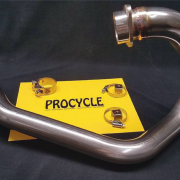
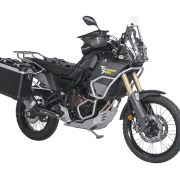
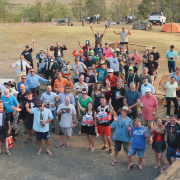
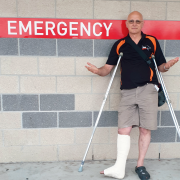
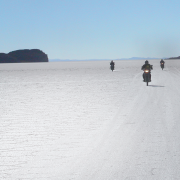
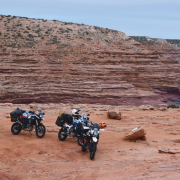
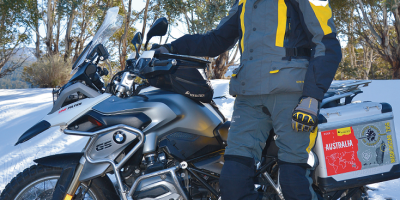
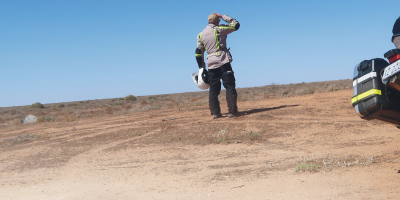
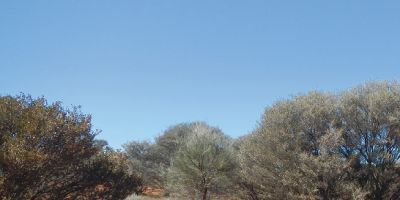
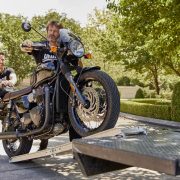

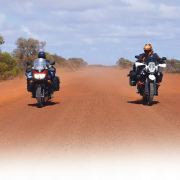

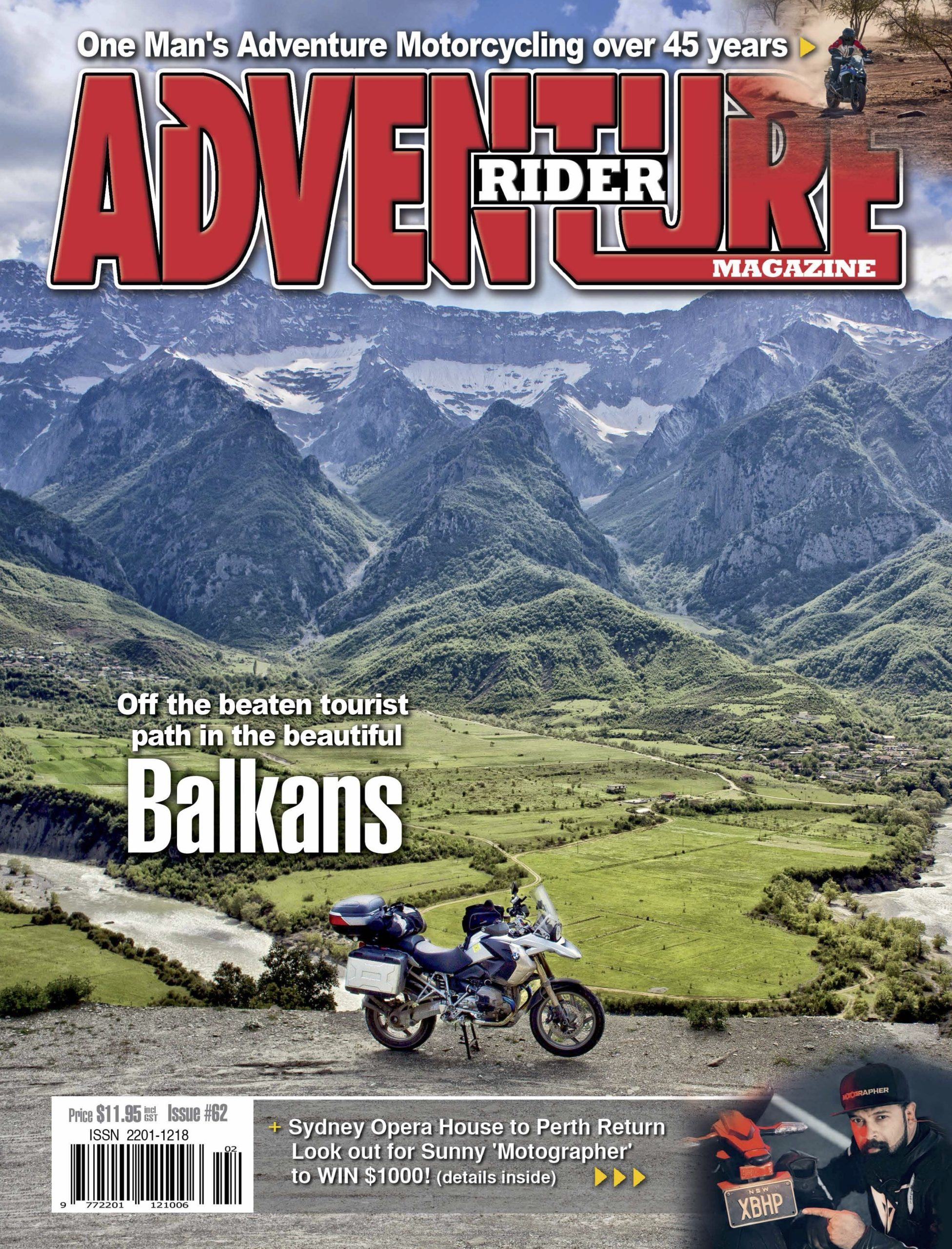



Comments